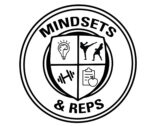
Thermodynamics is the primary reason you will gain or lose weight. Consume more calories than your body needs, you will gain weight. Expend more calories than your body needs, you will lose weight.
Wait, did I just contradict my own title?
Sort of. Here’s the problem with the basic calories in/calories out ideology: most people don’t want to lose weight. They say they want to lose weight, but in reality they want to improve their body composition. They want to lose body fat while retaining muscle. Even the notorious group of women who fear that lifting a 5lb dumbbell will lead to them looking like a young Arnold Schwarzenegger will still say they don’t want to look “flabby.”
Losing weight is easy, just look at professional fighters. Through calorie restriction, water manipulation, and a few hours in the sauna they can drop upwards of thirty pounds in a few days. Of course this isn’t a healthy process, but it just goes to show how easily and quickly one could lose weight.
If you want to improve your physique you have to dive deeper than just counting calories. The overall calorie intake matters, make no mistake, but you have to be strategic with how you structure your macronutrients. While many people will stress out over low carb/high carb, low fat/high fat; protein is actually the most important macronutrient to consider. The foundation of your diet should be based around protein consumption.
Why is protein intake so important?
- Satiety Effect
The most important component of any diet or training program is adherence. Meaning, you could have the best diet plan in the world but if you don’t follow it it’s all for nothing. Protein has a satiating effect, it fills you up and curbs your appetite. Simply put, the less often you are hungry the less often you will go off the rails and overeat. Dealing with hunger is a major hurdle that comes with calorie restriction, but eating enough protein is a great strategy to set yourself up for success.
2. Maintaining Lean Body Mass
This is what we’re talking about right? Not just losing weight, but losing weight in the right places in the right manner. A multitude of studies show that high protein intake is the best way to retain muscle and lose body fat on a diet. This is shown not just in obese individuals, but athletes as well. Protein is the only macronutrient that is used to build and repair tissue like muscle, hair, skin, among others. Fats and carbs cannot do this, they are simply fuel sources.
3. The Thermic Effect of Protein
It takes energy to digest and metabolize food. How cool is that, you get an uptick in calorie burning just by eating. Of course this will never result in a negative calorie balance, but it is something you can use to your advantage. In this regard, not all foods are created equal. The numbers vary, but all in all protein has a far higher thermic effect than fats or carbohydrates, upwards of 5x. Eating a proportionally higher amount of protein compared to carbs or fats results in fewer net calories consumed overall due to its thermogenic effect.
I’ve said the phrase a million times, so what exactly is a high protein diet?
This number varies wildly when it comes to the research. But what I tell my clients is that a good number to shoot for is one gram per pound of lean body mass. Remember lean body mass is not the same as weight (or else obese individuals would have to consume 300 or more grams per day!). Lean body mass is simply your weight minus fat mass. For me this would be:
185lbs (My Weight)- 22lbs (Fat Mass) = 163lbs (Lean Body Mass and thus 163 grams of protein per day)
To Calculate Fat Mass
185lbs (My Weight) x .12 (My Body Fat as a Percentage) = About 22lbs
You may not know your body fat but you can ask a trainer at the gym to do it for you, I’m certain they have the equipment to give you a decent estimate.
What about my kidneys?
This is a common misconception about high protein diets. The one caveat is if you have a pre-existing kidney issue, in that case it is something you want to speak with your physician about. In healthy individuals, this is not a concern. There is no evidence that a high protein diet harms kidneys in healthy individuals.
Fats and Carbohydrates
How should one distribute fats and carbohydrates? This is highly individualistic. Given what we know of the importance of protein, let’s say that 30% of your calories come from protein. That leaves 70% for fats and carbs. My advice would be to give them an even 35/35 split and self-monitor as many variables as possible such as: digestion, bloating, energy, workout performance, and hunger (even with the satiating effects of protein, carbs still cause a blood sugar response and thus potential cravings). From there it is your responsibility to make adjustments. Don’t stress out too much over it, there is certainly an element of trial and error when it comes to dieting.
I don’t want to give the impression that calories do not matter, of course they do. However, it is a bit irresponsible to think that our dream physique can be achieved just by restricting overall calorie intake. If it were that simple, I wouldn’t have a job, and there also wouldn’t be an entire section in Barnes N Noble dedicated to dieting. After determining the proper daily intake of calories, it is important to take the next step and fine tune your macronutrient intake to truly achieve the body you desire.
